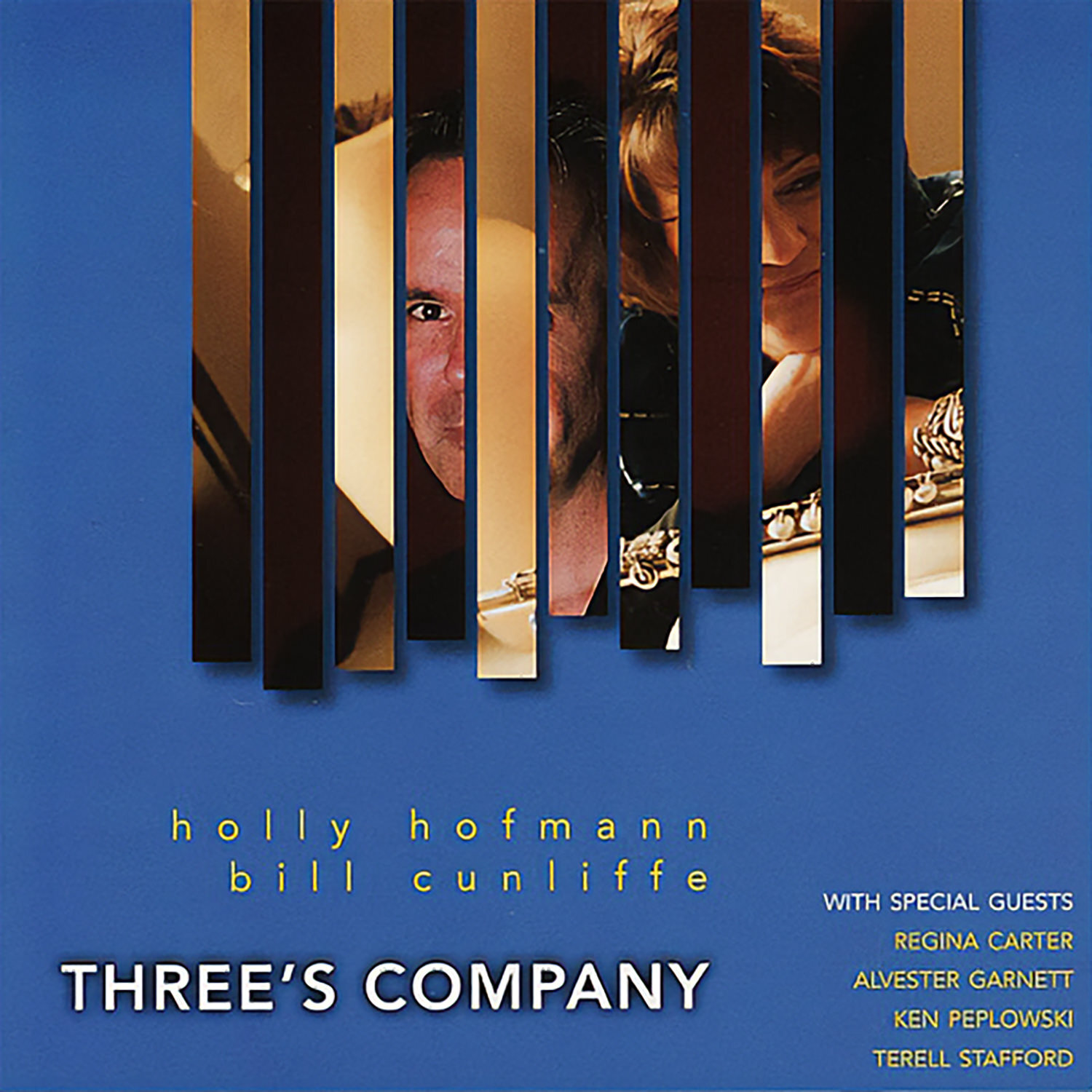2010
Three’s Company
1. Too Late Now 6:02
2. Dalto 6:14
3. Star-Crossed Lovers 9:11
4. Three's Comapny 5:46
5. Reunion 7:35
6. Pavane 6:29
7. Sweet Andy 6:34
8. Farewell 3:24
Holly Hofmann - flute
Bill Cunliffe - piano
Regina Carter - violin
Alvester Garnett - drums
Ken Peplowski - clarinet
Terell Stafford - trumpet
Flutist Holly Hofmann and pianist Bill Cunliffe are on their third time around formally in the recording studio, even though they've performed with each other numerous times for 20 years. Three's Company does, in fact, include four duet performances, but the other half of the tracks show up in trio settings, featuring one cut apiece with violinist Regina Carter, trumpeter Terell Stafford, clarinetist Ken Peplowski, or drummer Alvester Garnett. There's a mix of predictability and certain surprise in these standards and originals, as you expect from seasoned veterans seeking new horizons. Cunliffe and Hofmann have always strived for perfection, but also offer a great deal of lyrical depth and substance as these thoroughly professional mainstream jazz players do their thing. Of the duets, they do a quaint two-step version of "Too Late Now," showcase the Cunliffe tribute to the late Jorge Dalto on a Chick Corea-ish, Spanish heart-styled "Dalto" especially from the pianist's solo, go classical on Gabriel Fauré's somber ballad "Pavane," and close with another Cunliffe original (there are four on the date,) the simple "Farewell." Carter's violin is always robust, but here stretches out for the nine-minute, melancholy but lucid version of "Star Crossed Lovers," mixing in some counterpoint with Hofmann. Peplowski's feature "Reunion" departs from expected strict swing into a modernistic 6/8 modal framework, loaded with staccato accents, while Stafford's playful, snappy trumpet identifies the title selection, Hofmann's lone composition, and the most jazz-oriented tune here. Where drummer Garnett's strength lies in his flexibility providing traditional to contemporary rhythms, "Sweet Andy" is more of a post-bop jam, with everybody cutting loose, inspiring Cunliffe and Hofmann to play a fleet unison line. While there's nothing groundbreaking about this album, the individuality of each player forms a mutual bond, and a unified whole without a bassist or central timekeeper. Cunliffe and Hofmann are always in good company together, but here they raise the stakes on what sounds like a very comfortable union, producing a winning product.
-Michael G. Nastos
